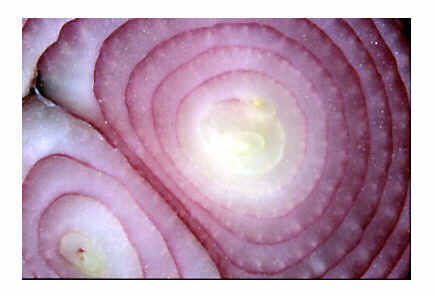 Thinking despite Doubt and Feeling despite Truth
Thinking despite Doubt and Feeling despite Truth
"Whatever God is, It must be closely related to truth." This is one of the few mottos that I adopted ten or fifteen years ago and still hold today. Most others have fallen by the wayside, or been outgrown like an old set of clothing. But I have long defended my idiosyncratic 'spiritual' beliefs - to myself, first and foremost, but also to others - on the grounds that they are not selections or evasions of the truth, but consequences of the pursuit of it. I do not fear inquiry; it is, for me, part of the process. So, although often labeled as religious, my ideas about the world are the opposite of what some people mean when they say "faith." They are part of the project of trying to get the most accurate picture of the universe, by whatever means, and living in accord with it.
For this reason, I have a lot of trouble with teachings like "thinking won't get you anywhere." In the contemplative world, it's something one hears a lot -- but with two very different meanings, as Ken Wilber frequently discusses in his work. Some teachers mean it the way it probably sounds: don't think, feel; your truth will come to you through emotional, or spiritual, paths. Your intuition, or mysterious magical forces, or your 'inner truth' -- these are the ways to enlightenment. For Wilber, and for me, this is very problematic. First, although they may be possessed of poetic genius, our 'inner children' are also self-centered, self-interested babies; even if we do need to acknowledge and express them at times, surely they do not have all the answers. They won't tell you how to be tolerant, or how to give CPR. They're a piece of the puzzle, not the solution. Moreover, if spiritual practice is about regression, then those who practice it deserve all the snickers they get from the contemptuous intelligentsia. Why not just take drugs?
A lot of teachers, however, mean something very different when they say that thinking won't get you anywhere. They mean that there are faculties higher - not lower -- than rational thought. What is meant by "higher"? For Wilber, that which is higher "transcends and includes" what is below it in what he calls a 'holarchy.' To take an easy example, the unit of daughter-family-community is a holarchy. Unlike a hierarchy, a holarchy does not imply priority: the family is not necessarily more important or more valuable than the individual member, and a community is not more important than a family. But communities transcend and include families, in a way that families do not include communities; families transcend and include family-members, in a way the individual members do not include families. Likewise, contemplatives want to say, 'higher' faculties of the individual transcend and include the rational mind - they are not 'prerational' but 'transrational.' They include reason - and something more.
Wilber wants to say, and has spent thousands of pages saying, that much of human mental-emotional-spiritual-etc. experience of the world can be mapped onto a holarchy that proceeds along a number of levels of the body, mind, soul and spirit, beginning with the sensorimotor world (bodies, matter, physics) through emotional-sexual, magical, mythic, and rational, on to levels which are only accessed through meditation, contemplation, mystical experience, art, or the host of other human practices that are 'transpersonal' in nature - i.e., that move us into something which seems (a critical word to which I will return) to be greater than ourselves.
Wilber hates the fact that so many people confuse the pre-rational and trans-rational. He calls it the 'pre/trans fallacy,' and blames it for much New Age and related spiritualist confusion. Much New Age mishegas is magical or mythical in nature, for example, but because it is non-rational, it can easily get confused for being trans-rational. Yet magical practice does not include rational thought at all; in fact, it often denies it.
 Critically, the 'higher' levels on the human-experiential holarchy (I'll stop scarequoting words
like 'higher' now, but continue to mean them in holarchical terms, not hierarchical ones) do embrace
the lower ones. There aren't many ways to test this except through personal experience, but having
had a few peak and plateau experiences of the psychic (nature mysticism, 'cosmic consciousness'),
subtle (deity mysticism), causal (the Witness, mystical union), and nondual levels myself, I can
agree with Wilber on the basis of my own experience: these levels do not deny the thinking mind,
but include it within something more. The thinking mind is present, and can be watched by the
Witness as it goes through the motions of thought. You don't have to set it aside, or check your
reason at the door. However it is very clear that there is also something
watching the mind, embracing it, more than it.
Critically, the 'higher' levels on the human-experiential holarchy (I'll stop scarequoting words
like 'higher' now, but continue to mean them in holarchical terms, not hierarchical ones) do embrace
the lower ones. There aren't many ways to test this except through personal experience, but having
had a few peak and plateau experiences of the psychic (nature mysticism, 'cosmic consciousness'),
subtle (deity mysticism), causal (the Witness, mystical union), and nondual levels myself, I can
agree with Wilber on the basis of my own experience: these levels do not deny the thinking mind,
but include it within something more. The thinking mind is present, and can be watched by the
Witness as it goes through the motions of thought. You don't have to set it aside, or check your
reason at the door. However it is very clear that there is also something
watching the mind, embracing it, more than it.



Harvard Death Fugue
On the Exploitation of Bruno Schulz
James Russell
The Jews of Istanbul
Sara Liss
The Truth about the Rosenbergs
Joel Stanley
Thinking despite Doubt, Feeling despite Truth
Jay Michaelson
Two Rituals
Joshua Bolton
Hepster Advice
Jennifer Blowdryer
Josh Goes to the Hospital
Josh Ring
Archive
Our 400 Back Pages
Saddies
David Stromberg
Zeek in Print
Winter 03 issue now on sale
About Zeek
Events
Contact Us
Links
From previous issues:
Surrender
Niles Goldstein
Run Like the Wind
Jay Michaelson & Dan Friedman
Radical Evil
Michael Shurkin